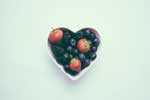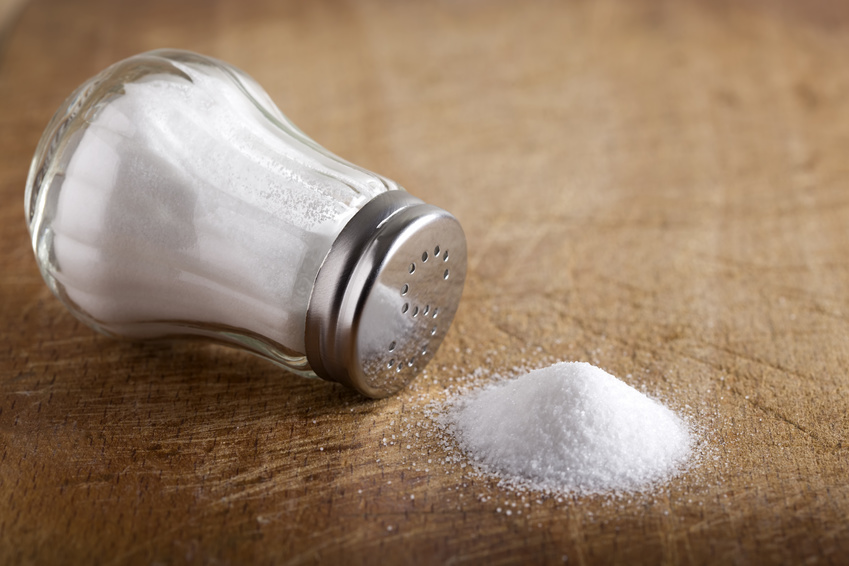
The association between sodium consumption and blood pressure levels has been known for many years. According to researchers, in addition to lowering blood pressure, a low-salt diet may also help other ailments, including osteoporosis, Meniere’s Disease, kidney stones, Alzheimer’s Disease, and other ailments.
Click on a category below to read the latest news:
- 6/16 – FDA asking food manufacturers and restaurants to voluntarily lower the amount of sodium in their products and prepared food. At least 70% of the sodium we consume comes from processed foods, making it difficult for consumers to lower their salt intake. Medscape
- 4/13 –A dietary compound abundant in red meat and used as a supplement in energy drinks, energy pills and some weight-loss treatments may promote hardening of the arteries. This may help explain why some people, even when they get their cholesterol under control, still suffer ill effects from a diet high in meats such as beef, venison, lamb, duck and pork. Cleveland Clinic
- 3/13 – Since Finland’s campaign in the early 1970s to reduce salt intake, daily consumption has dropped by 3,000 mg a day in men and women, with a corresponding decline in death rates from stroke and coronary heart disease of 75 to 80 percent. New England Journal of Medicine
- 2/13 – People at high risk for heart attack and strokes can reduce their risk by 30% if they switch to a Mediterranean diet rich in olive oil, nuts, beans, fish, fruits and vegetables, and even drink wine with meals, a large and rigorous new study has found. New England Journal of Medicine
- 12/12 – A small, steady reduction of sodium in the American diet could save up to 500,000 lives over the next decade. A more rapid reduction could save even more lives – as many as 850,000. Hypertension
- 12/15 – The risk for high blood pressure is greater for obese and overweight people younger than 65. Individuals 65 and older, weight had little to do with systolic blood pressure. Preventing Chronic Disease
- 6/13 – The world’s largest study to examine the link between vitamin D levels and hypertension has found that low levels of Vitamin D can be a major cause of hypertension. European Society of Human Genetics (ESHG)
- 4/13 – Aerobic exercise, like brisk walking, has the greatest effect on high blood pressure. Biofeedback, weight lifting, transcendental meditation, and synchronized breathing (such as breathing to a series of tones) also is effective. American Heart Association
- 11/12 – New research found middle-aged people with hypertension had accelerated brain aging; including those with pre-hypertension (blood pressure not considered high enough for medication). Lancet
- 9/12 – A new study suggests eating 6-oz of low-fat yogurt every 3 days may help lower your risk of high blood pressure. This supports what many experts believe, that low-fat dairy products reduce blood pressure. American Heart Association
- 9/12 – New research indicates that people who don’t get enough sound sleep are twice as likely to have resistant hypertension than those who get enough sound sleep. High blood pressure patients who take 3 or more hypertension medications but are still higher than 140/90 are considered resistant. University of Pisa, Italy
- 4/08 – Even though you may sleep through a night of noises, such as snoring, sirens, or screeching care, your body is aware of the noise and raises your blood pressure. Anything exceeding 35 decibels (dB), such as the hum of a refrigerator (40 dB), raised the blood pressure of study volunteers and the louder the noise, the higher the blood pressure. European Heart Journal
- 3/16 – Adults with poor sleep quality have stiffer arteries than those who sleep seven hours a day or had good sleep quality. They also are more likely to have high blood pressure, high cholesterol, diabetes, and be obese. Reuters Health
- 7/13 – Research shows that controlling your high blood pressure and high cholesterol may cut your risk for heart disease by half or more. Circulation
- 6/13 – Researchers found that consuming too much sugar can greatly increase your risk of heart failure. G6P, an enzyme essential to metabolizing glucose, builds up when too much sugar and starch is consumed and causes severe stress and improper functioning of the heart. Journal of American Heart Association
- 1/16 – Skipping breakfast may increase stroke risk. In a Japanese study participants were followed for 15 years… those never eating breakfast had a higher risk for cerebral hemorrhage. Stroke
- 5/13 – Depression in middle-aged women doubles their risk of having a stroke. Although it is not known why, researchers believe the body’s inflammatory and immunological processes have an impact on our blood vessels and may play a role. Stroke: Journal of the American Heart Association.
- 4/13 – Consuming less salt and more potassium can lower blood pressure and the risk of stroke. Potassium consumption of at least 3,510 mg a day can reduce stroke probability by 24%. British Medical Journal (BMJ)
- 3/13 – Drinking 4 or more cups of green tea or 1 or more cups coffee per day may reduce your risk of stroke by 20% to 30%. Stroke: Journal of the American Heart Association
- 1/13 – Women who walk at least 3 1/2 hours every week were less likely to develop a stroke than those who didn’t do much physical activity. Stroke: Journal of the American Heart Association
- 1/16 – Kidney stones on the rise in the U.S. including children. Researchers believe this may be attributable to increased sodium intake, decreased calcium intake, or dehydration. Clinical Journal of the American Society of Nephrology
- 5/13 – A heart healthy lifestyle may help protect chronic kidney disease patients from developing kidney failure and dying prematurely. The study used the American Heart Association’s Life’s Simple 7, which includes not smoking, physically active, heart healthy diet, normal weight, and maintaining low blood sugar, blood pressure, and cholesterol levels. Those with 4 factors cut their risk by 50%, those with 5-7 factors had no kidney failure. Journal of the American Society of Nephrology
- 11/15 – MIND diet (Mediterranean-DASH Intervention for Neurodegenerative Delay, a combination of the DASH and Mediterranean diets) can reduce risk for Alzheimers… 53% for those who followed it strictly and 35% for part timers. Alzheimers Dementia
- 7/13 – People who engage in mental activity, like reading and writing, have 32% less mental decline than those with average mental activity. People who were less mentally active had a 48% decline in memory. Neurology
- 5/13 – Two compounds found in cinnamon – cinnamaldehyde and epicatechin – may show some promise in fighting Alzheimers .Journal of Alzheimer’s Disease
- 4/13 – People with a buildup of certain proteins in the brain and spinal fluid have an increased risk of developing Alzheimer’s. While unclear who will develop these accumulations, researchers have identified mutations in certain genetic regions that influence these accumulations. Neuron
- 4/13 – People at risk for heart disease and stroke have an increased likelihood of certain types of cognitive decline. Neurology
- 3/13 – Extra virgin olive oil helps reduce the risk of Alzheimer’s disease (AD). A component of olive oil, oleocanthal, may protect nerve cells that helps shuttle the abnormal AD proteins out of the brain. ACS Chemical Neuroscience
- 1/13 –Diabetics who incur hypoglycemic (low blood glucose) events have a greater risk of developing cognitive impairment, including Alzheimers and dementia JAMA Internal Medicine
I eat healthy foods, why worry?
Question: I eat healthy foods... do I still need to watch the salt? Answer: Most definitely. Healthy does not necessarily mean low-sodium. For example, cottage cheese, salad dressings, and fresh poultry that's often injected with a sodium [...]
I don’t use the saltshaker
Question: I don't use the saltshaker, isn't that enough to lower my sodium intake? Answer: The saltshaker only contributes about 10% of our daily sodium total. The vast majority comes from processed foods. If you eat a sandwich, [...]
Salt or Sodium?
Question: What's the difference between salt and sodium? Answer: Salt is composed of sodium (40"%) and chloride (60%). One teaspoon of salt contains about 2,300 mg of sodium. Although they are different the words are often used in place [...]
What Foods Are High in Sodium?
Question: What foods have the most sodium? Answer: According to the CDC, 40% of sodium comes from 10 types of foods: Breads and rolls Cold cuts and cured meats, such as deli or packaged ham or turkey Pizza [...]




Recent Comments